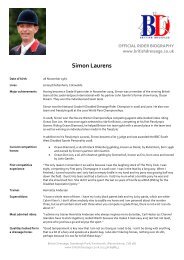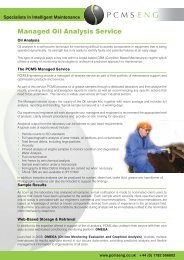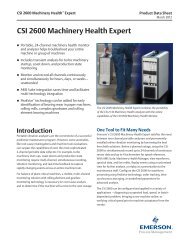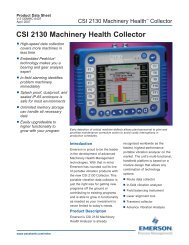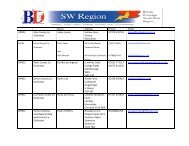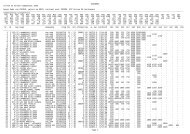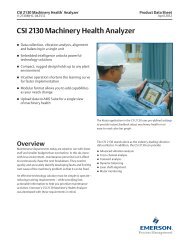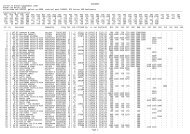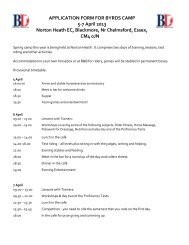Download Publication - The Nuffield Trust
Download Publication - The Nuffield Trust
Download Publication - The Nuffield Trust
Create successful ePaper yourself
Turn your PDF publications into a flip-book with our unique Google optimized e-Paper software.
GP commissioning: insights from medical groups in the United Stateswith clinical quality and doctors’ autonomy, thusavoiding perceptions of care being denied to patientson cost grounds.• Savings are made from efficient provision of high-qualitycare, by managing chronic disease, avoiding unnecessaryhospital admissions and minimising readmissions.Groups monitor referrals into specialist care and requireprior authorisation for some procedures.• Success is built on high-quality primary care, andall groups closely performance manage their primarycare doctors by feeding back data on performanceand using financial incentives linked to qualityindicators.• Success also depends on judicious use of specialist careby the groups’ doctors. All the groups have specialists aspart of their membership (either employed or oncontract) and ‘hospitalists’ to manage their patients’ carewhen in hospital.• Groups have either developed, or contracted with,alternatives to hospital care, including skilled nursingfacilities, urgent care centres and 24-hour support fortheir most frail patients.• <strong>The</strong>re has been substantial investment in data collection,IT systems and analysts, and in professional staff tonegotiate contracts, organise billing and managedoctors’ performance.Emerging themesClinical ownershipAll groups described themselves as ‘physician-owned’,but there were different forms of ownership. In theIPA model (where doctors own their premises, similarto GPs), doctors could belong to several IPAs at once,so the two IPAs (Monarch HealthCare andMills-Peninsula Medical Group) open the offer ofshareholding to all their doctors with a significantcontractual relationship with the group. For the twoemployed medical groups, a tiered approach toownership was used. For example, one group assignednew recruits to an initial period of purely salariedemployment, followed by the opportunity to become apartner or a shareholder. Partnership brought increasingfinancial benefits but also meant that a greater proportionof a doctor’s income was tied to performance. In additionto shareholding or partnership, doctors were givenopportunities to own stakes in capital projects.Although there was some variation, a common theme inthe interviews was the importance of building a sense ofownership and belonging among the member doctors.“It’s owned by physicians and governed byphysicians. It’s a concept which is reallyimportant to our success.”Medical director, medical groupA sense of ownership was perceived as important because itenabled the group to take decisions about investment ormeasures to improve the quality of care in the confidencethat all (or many) of its doctors would cooperate actively.One group, Bristol Park, allowed all doctors access tomonthly board meetings (which were very well attended),and had a smaller executive committee that was able to takedecisions more swiftly. This committee combined executiveofficers and board members (the overall governancearrangements for Bristol Park are set out in Figure 2).Leaders in all groups described a fine line betweenphysician ownership and ‘excessive democracy’, whererank-and-file doctors could be overly influential onexecutive decisions. It was felt to be very important to havean executive board (or equivalent) that was mandated totake decisions in the interests of the group, on behalf of thewider membership.Strength and longevity of leadershipInterviewees were unequivocal in asserting the importanceof sustained and stable medical leadership of theorganisation. <strong>The</strong>y were clear that their groups had thrivedbecause they were run as businesses, and felt that theirsuccess was rooted in an ability to negotiate adequatecapitated rates with insurance companies and then delivercare at a lower cost than the budget.To do this, groups needed to negotiate contracts withspecialists and hospitals, and to manage the performanceof their doctors so that they are able to deliverhigh-quality primary care. Medical leadership wasconsidered crucial to these functions – for example, toencourage primary care doctors to make appropriate useof specialist care and use services developed as alternativesto hospital admission.“Having physician leaders makes a bigdifference. Deep down you know they’vewalked in your shoes, so there’s more trust.Doctor, IPA6www.nuffieldtrust.org.uk/publications




